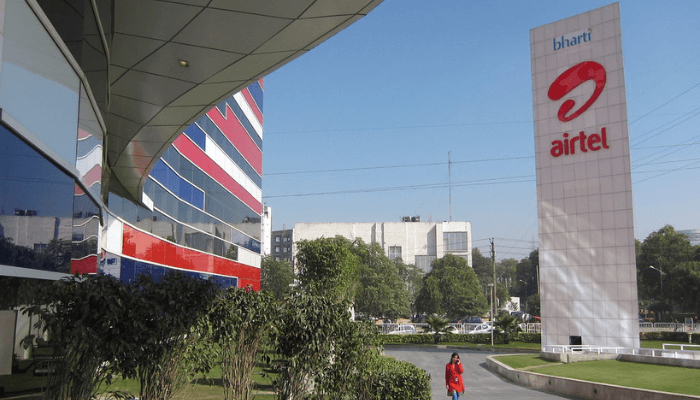How data, fintech drove Airtel Africa’s profit to quadruple in six months
Airtel Africa has kicked off its 2025 financial year with an impressive rebound, reporting a 375 percent surge in profit after tax to $376 million for the half-year ended September 30, 2025.
The telco’s turnaround was driven by explosive growth in data and mobile money usage, alongside improved currency performance in key markets like Nigeria and parts of Francophone Africa. The company’s report marks a significant shift from traditional voice-led earnings to a digitally anchored business model that is now paying off.
For the first time in its history, data revenue overtook voice to become Airtel Africa’s largest earnings driver. Data income rose 37 percent in constant currency to $1.16 billion, powered by an 18.4 percent increase in active data users to 78.1 million.
Smartphone penetration reached 46.8 percent, while average monthly data consumption hit 8.2GB per user, reflecting both rising affordability and growing digital engagement across the continent.
“Data is now the heartbeat of our business. We have made strategic investments to ensure that our customers experience superior connectivity, and this has translated directly into stronger financial performance,” Sunil Taldar, Airtel Africa’s CEO, said in a statement.
Voice revenue still grew 13.2 percent in constant currency, buoyed by an 11 percent increase in subscribers to 173.8 million, but it now trails behind data as consumer behaviour shifts towards digital platforms, streaming, and online transactions.
The telco’s Airtel Money platform also delivered strong results, with revenue up 30.2 percent to $623 million. Its customer base grew 20 percent to 49.8 million, while the total annualised transaction value jumped nearly 36 percent to $193 billion.
This momentum has turned Airtel Money into a key pillar of Airtel Africa’s diversification strategy, now contributing 21 percent of group revenue. The company said preparations for a planned IPO of Airtel Money remain on track for the first half of 2026.
Read also: Automation era deepens as Amazon slashes 30,000 white-collar roles
Beyond payment transfers, the platform has expanded into micro-lending, savings, and merchant payments, reflecting Africa’s growing appetite for digital financial services.
Airtel Africa’s largest market, Nigeria, was the standout performer, delivering a 49 percent rise in revenue in constant currency terms. Data revenue in the country surged 62 percent, while EBITDA margin climbed to 56 percent supported by improved network capacity and currency appreciation of the naira.
In East Africa, revenue rose 15.6 percent to $1.05 billion, while Francophone Africa posted a 14.5 percent gain to $749 million, helped by tariff adjustments and stronger CFA franc performance.
Across its 14 markets, Airtel added over 2,350 new network sites, expanding its footprint to 38,300. The company said 98.5 percent of its sites now have 4G coverage, with 5G rollout underway in five countries.
Fibre capacity also grew by 4,000 kilometres to over 81,000 km, reinforcing the network backbone behind its data and fintech push.
Airtel Africa’s EBITDA climbed 33.2 percent to $1.45 billion, raising its margin to 48.5 percent from 45.8 percent a year ago. The company attributed this to cost efficiency measures, lower finance costs, and the absence of the heavy foreign exchange losses that dented last year’s performance.
Finance costs dropped to $304 million, down from $528 million a year earlier, while 95 percent of Airtel’s operating debt is now in local currency, reducing exposure to FX volatility.
Operating cash flow jumped 46.5 percent to $1.13 billion, while leverage improved to 2.1x, from 2.3x last year. The board also declared an interim dividend of 2.84 cents per share, up 9.2 percent.
Airtel Africa’s transformation from a traditional telecom operator into a digital services company is now evident in both numbers and strategy. With rising data consumption, fintech expansion, and deeper investments in fibre and 5G, the company is positioning itself as a techco rather than just a telco.
“Our strong half-year performance gives us confidence to raise our capex guidance,” Taldar said, noting that the company plans to invest up to $900 million in FY2026 to accelerate digital growth and network modernisation.

